USAID Sustainable Coral Triangle
The USAID Sustainable Coral Triangle (USAID SCT), a five-year initiative supported by the U.S. Agency for International Development Regional Development Mission for Asia (USAID/RDMA), is designed to advance the CTI-CFF’s Regional Plan of Action 2.0 (RPOA 2.0). It focuses on enhancing marine biodiversity and fisheries management in the Coral Triangle, particularly in response to climate change. The USAID SCT is structured around three objectives: strengthening governance and policy frameworks, empowering communities for conservation and resilience, and improving access to sustainable financing. These efforts aim to ensure the sustainability of fisheries, biodiversity, and livelihoods across the six Coral Triangle countries.
Welcome to the USAID Sustainable Coral Triangle News page! Here, you'll find updates, success stories, and insights from our efforts to conserve and sustainably manage the Coral Triangle's rich marine biodiversity. This platform highlights our conservation projects, community initiatives, innovative solutions, and partnerships across Indonesia, Malaysia, Papua New Guinea, the Philippines, Solomon Islands, and Timor-Leste. Stay informed about key events and milestones in our mission to protect these vital ecosystems. Join us in our journey to ensure a sustainable future for the Coral Triangle. Thank you for visiting and supporting our cause!
Monitoring and Evaluation Learning Exchange and Training in Papua New Guinea
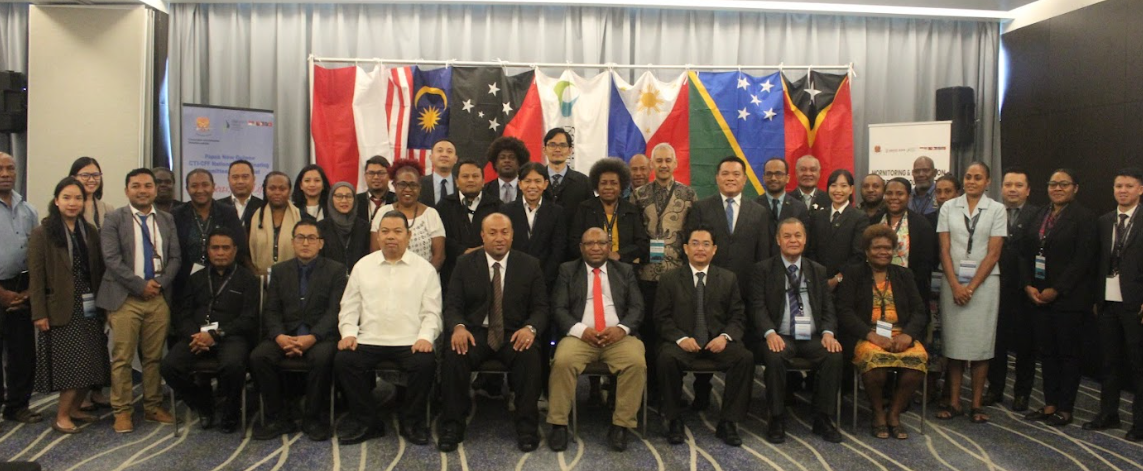
The Coral Triangle Initiative on Coral Reefs, Fisheries, and Food Security (CTI-CFF) hosted a significant event from 15-17 July 2024, at The Stanley Hotel & Suites in Port Moresby, Papua New Guinea. This event, supported by the PNG National Coordinating Committee (NCC) and various partners, was a three-day gathering aimed at fostering regional cooperation, enhancing technical capacities, and aligning national conservation efforts with regional goals.
The event included an annual Monitoring and Evaluation Working Group (MEWG) meeting, a Coral Triangle Atlas Training, and a National Plan of Action (NPOA) Learning Exchange Workshop.
The meeting commenced with a warm welcome from the host, Papua New Guinea NCC, the Chair of the Monitoring and Evaluation Working Group (MEWG). Continued with an opening remark by Dr. Frank Keith Griffin, Executive Director of the CTI-CFF Regional Secretariat, who recognized the challenges posed by the COVID-19 pandemic and embraced the pleasure of having in-person meetings and getting to know the esteemed partners and colleagues.
Distinguished guests attending were H.E. Mr. Ariz Severino Convalecer, Charge d'Affaires of the Philippines Embassy; H.E. Hamizan bin Hashim, High Commissioner of Malaysia; Mr. Melvin Cheah Chee Aun, Counsellor; and representatives from Indonesia, Malaysia, Papua New Guinea, Solomon Island and Timor-Leste.
Dr. Frank Griffin highlighted the Coral Triangle region's critical role in global marine life sustainability. Discussions focused on implementing the Regional Plan of Action for 2021-2030, with a midterm review scheduled for 2025. A significant announcement was made about a 20-million-euro project funded by the German Government, aimed at enhancing regional monitoring and evaluation efforts.
On the CT Atlas training session, Paulina Gerstner from the Allen Coral Atlas program led the participants through the Atlas tool, demonstrating its use in supporting coral reef conservation and associated ecosystems. Participants learned how to utilize the polygon tool for extracting statistics and assessing locations for coral restoration.
Paulina also presented the results of habitat map validations and encouraged participants to report inaccuracies for future remapping. Training on the CT Atlas platform included creating logins, downloading data, and utilizing data manipulation features for monitoring coral reef threats like bleaching and turbidity.
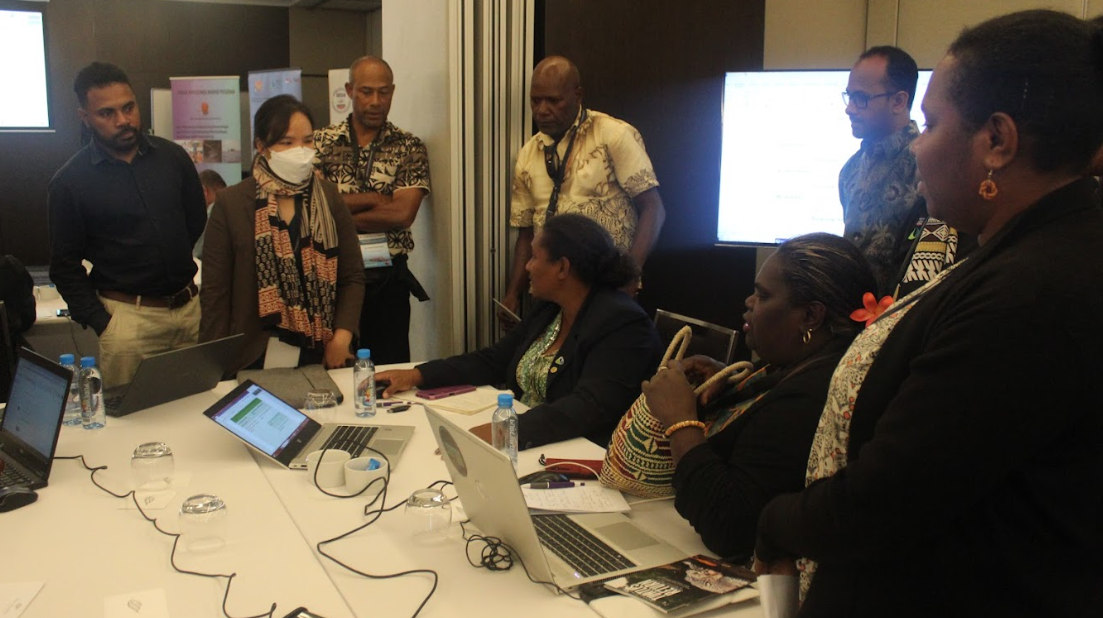
Collaborative learning and development were emphasized, with a focus on sustainable and inclusive economic and environmental growth. Representatives discussed the need for political support and the busy schedule planned for 2024 and 2025.
Presentations from Indonesia, Papua New Guinea, and the Solomon Islands highlighted marine conservation efforts, including the management of mangrove forests and marine protected areas (MPAs). Updates were provided on national marine conservation strategies, emphasizing stakeholder consultation and the need for updated data.
Discussions led by Mr. Anjum Islam from USAID Sustainable Coral Triangle (SCT) focused on improving the CT Atlas platform by addressing inaccurate data, incorrect naming, and poor data synchronization. The USAID SCT will support the initiative to update the platform with reliable information and standardizing attribute usage.
A workshop led by Mr. Solomon Sundah from the Regional Secretariat focused on data sharing, training, and management. Participants learned how to manage and clean data using tools like Google Earth, Excel, and QGIS, and how to input data into Google Earth and transform MPA points into shapefiles.
Aligning activities and integrating information into national plans of action (NPOAs) was also a key topic of discussion. A learning exchange workshop facilitated by consultant Andy Exon aimed to share information and experiences among countries.
Budget planning for 2024 was addressed, emphasizing the importance of collaboration and realistic budgeting. The need for dedicated staff and partnerships to support the Monitoring and Evaluation team was also highlighted.
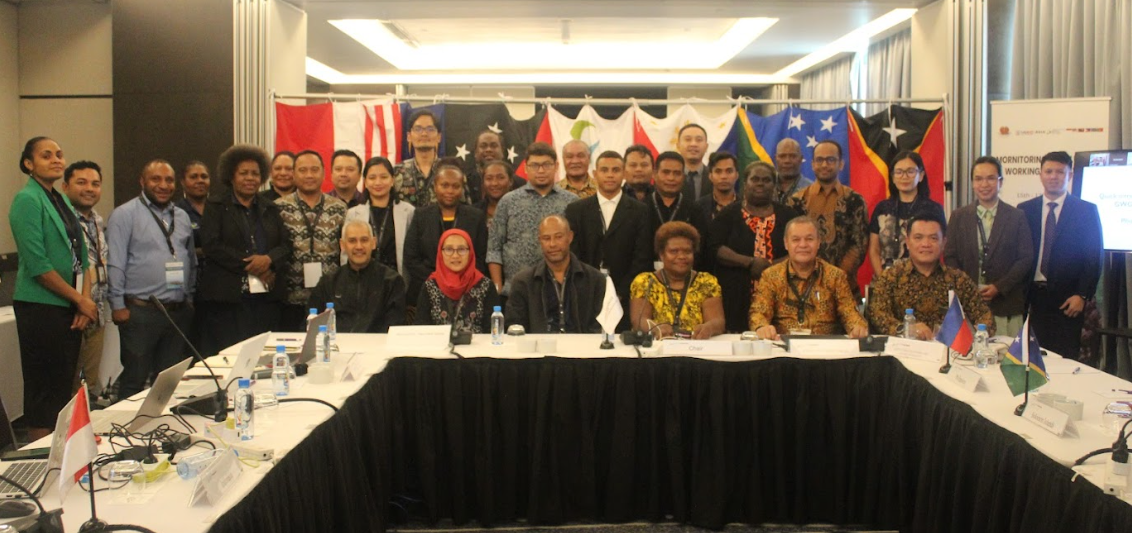
The Monitoring and Evaluation Working Group (MEWG) stressed the importance of finalizing NPOAs by year-end and agreed to conduct a special meeting to discuss the work plan and budget. Regular meetings for NPOA monitoring were also planned.
The three-day meeting in Papua New Guinea underscored the importance of accountability and evidence-based decision-making in marine conservation. Comprehensive training, collaborative discussions, and strategic planning set the stage for continued progress in the Coral Triangle Initiative.
USAID Sustainable Coral Triangle Project Kicks Off
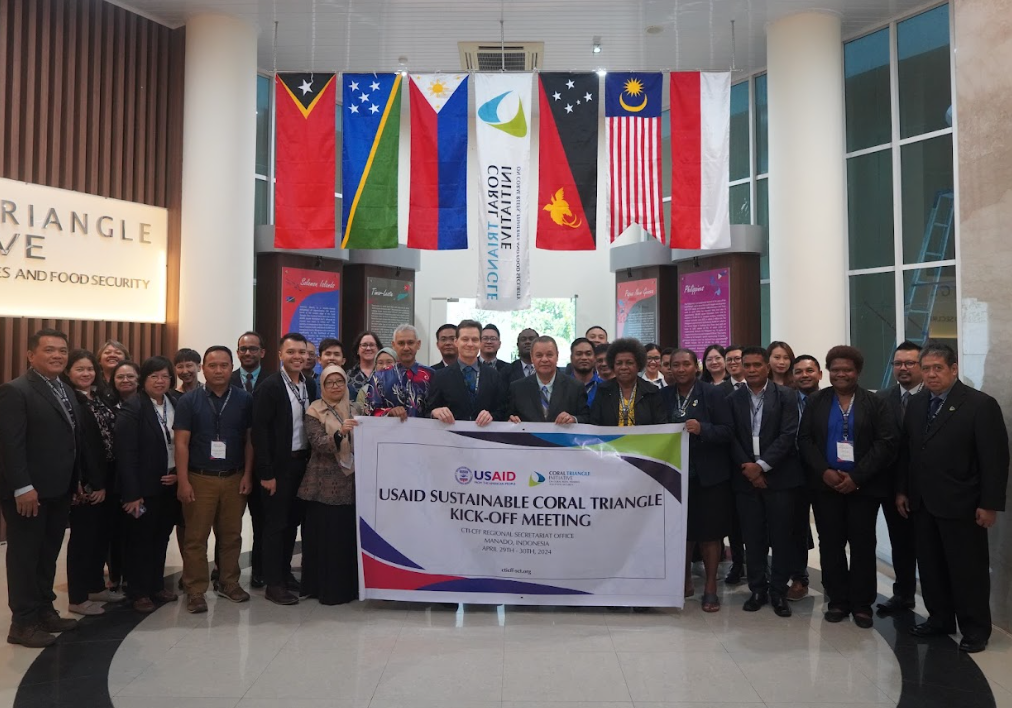
The Coral Triangle Initiative on Coral Reefs, Fisheries, and Food Security (CTI-CFF) Regional Secretariat proudly announced a new project in partnership with USAID, sparking optimism for the future of marine conservation in the Coral Triangle region. USAID Sustainable Coral Triangle (SCT) launched with a two-day kick-off meeting as a significant step forward in preserving the region's marine biodiversity and fisheries resources.
Around 40 participants attended, representing the Coral Triangle member Countries, the Environment Office of USAID’s Regional Development Mission for Asia (RDMA), the USAID Sustainable Fish Asia Technical Support (SuFiA TS) team, the Coral Triangle Conservation Fund (CTCF), the CTI-CFF Regional Secretariat including the USAID SCT Project Management team and CTI strategic partners & collaborators such as the University Partnership Coordinator Prof. Grevo Gerung and SEAFDEC. The event was held in-person in the CTI-CFF Regional Secretariat office in Manado, 29-30 April 2024.
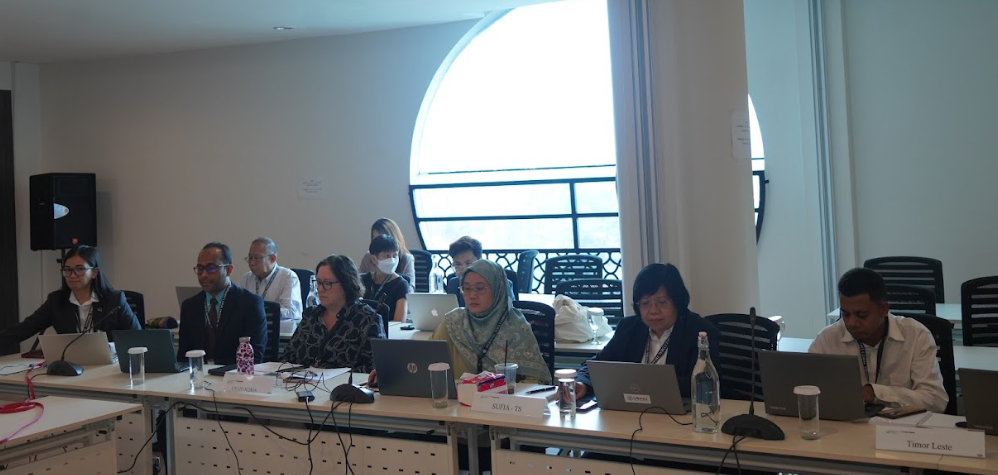
The meeting served as a platform to introduce USAID Sustainable Coral Triangle to CTI member countries and stakeholders. It outlined the objectives, activities, and expected outcomes, fostering constructive dialogue and engagement.
The agenda featured insightful presentations from Mr. Md. Anjum Islam, Project Manager USAID SCT, with opening remarks from notable figures such as H.E. Dr. Frank Keith Griffin, the Executive Director of the CTI-CFF Regional Secretariat and Brad Arsenault, Deputy Director of the Environment Office at USAID/ RDMA, and moderated by Mr. Christovel RS. Rotinsulu, Deputy Executive Director for Program Services of CTI-CFF.
Additionally, representatives from various organizations contributed to the discussions, enriching the dialogue on topics ranging from governance and policy frameworks to capacity building initiatives and partnerships with private investors. Discussions on key topics such as blue financing, institutional capacity building, and multi-stakeholder partnerships underscored the collective efforts required to address challenges in marine conservation and climate adaptation.
As part of the Regional Secretariat’s contribution to the project, Ms. Dewi Satriani, Communication and Information Manager, Mr Corzzierrah Posala, Technical Program Manager and Mr. Agostinho Andy Irmawan, Monitoring and Evaluation Manager, provided some insights into how the Regional Secretariat will assist in the implementation of the project. These included templates for reporting and communication tools in getting the messages across to the targeted audiences.
Ms. Payton Deeks from USAID/RDMA expressed optimism about the project's success. She also thanked all the participants for their valuable time and contributions.
Despite facing an unexpected challenge on its second day with Mount Ruang's eruption, disrupting travel plans, the meeting persevered, showcasing resilience and commitment to marine resource management in the Coral Triangle region. Looking ahead, USAID Sustainable Coral Triangle stands poised to make a tangible impact, guided by a robust monitoring and evaluation framework. With continued collaboration, it holds the promise of safeguarding the invaluable natural heritage of the Coral Triangle for generations to come.
List of Activities
Climate Change Adaptation Working Group Meeting
Date: 11-12 September 2024
Location: Bangkok
Monitoring and Evaluation Training by USAID RDMA
Date: 20-22 August 2024
Location: Manado
Monitoring and Evaluation Learning Workshop
Date: 15-17 July 2024
Location: Port Moresby
USAID Sustainable Coral Triangle Project Kicks Off
Date: 29-30 April 2024
Location: Manado
Project Description
The Coral Triangle Initiative on Coral Reef, Fisheries, and Food Security (CTI-CFF) is actively advancing its Regional Plan of Action (RPOA 2.0). To meet the RPOA 2.0's goals for 2025 and 2030, a comprehensive five-year plan is being implemented, with support from the United States Agency for International Development Regional Development Mission for Asia (USAID/RDMA) through the USAID Sustainable Coral Triangle. This initiative aims to enhance the management of marine biodiversity and fisheries resources in the Indo-Pacific region, particularly in the context of a changing climate.
Related Video
Strengthen governance and regional policy frameworks for effective and efficient implementation of regional and national policies on sustainable fisheries and climate adaptation.
Expected results from Objective 1:
-
Expected Result 1.1
Regional and national efforts (initiatives/ programs/ projects/ collaborations, etc.) on IUU fishing, sustainable fisheries and climate adaptation by CTI-CFF Regional Secretariat and CT6 (six member countries) countries are increased.
-
Expected Result 1.2
Capacity within CTI-CFF Regional Secretariat (RS) and member countries to govern the transboundary Coral Triangle and formulate integrated fisheries management and climate adaptation policies and strategies is improved.
-
Expected Result 1.3
Demonstration of CT6 governments’ commitment and capacity on combating IUU fishing, sustainable fisheries and climate adaptation is increased.
Empowering communities and other stakeholders to become catalysts for coastal and marine conservation, entrepreneurship, and climate resilience through collaborative partnerships and regional platforms.
Expected results from Objective 2:
-
Expected Result 2.1
Improved gender composition in the fisheries sector, including coastal resources management and marine conservation, and enhanced capacity and knowledge of women and youth in combating IUU fishing, marine biodiversity conservation, climate adaptation and entrepreneurship.
-
Expected Result 2.2
Multi-stakeholder partnership and regional platforms, including CTI-CFF RS, are leveraged to strengthen sustainable resilient communities.
Enhancing the availability and accessibility of sustainable and self-reliant financing mechanisms to support fisheries management, biodiversity conservation, and climate change adaptation and mitigation, ultimately promoting sustainable livelihoods in the Coral Triangle (CT) region.
Expected results from Objective 3:
-
Expected Result 3.1
CTI-CFF’s Coral Triangle Conservation Fund (CTCF), which provides sustainable and independent blue financing, is launched and becomes operational.
-
Expected Result 3.2
Coral Triangle Conservation Fund’s guidelines, tools, and mechanisms are developed, refined, and implemented.
-
Expected Result 3.3
Institutional capacity of CTI-CFF RS, CT6 government, and stakeholders/partners is enhanced to support the development and implementation of Coral Triangle Conservation Fund’s investments, activities and projects.
-
Expected Result 3.4
Partnerships with private investors are developed to secure resources to support the Coral Triangle Conservation Fund, and private and blended finance mechanisms are developed to mobilize the funds.
Project Team
Project Team
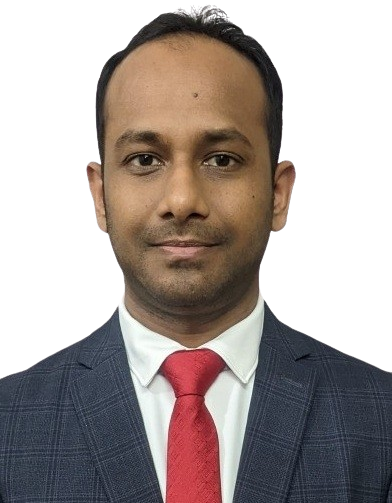
Project Manager
Mr. Md Anjum Islam
Mr. Md Anjum Islam is a distinguished Project Management Professional with extensive experience in environmental and governance studies, supported by two Master’s degrees. He currently serves as the Project Manager for the USAID Sustainable Coral Triangle, implemented by the CTI-CFF Regional Secretariat, bringing a strong background in managing initiatives funded by USAID, DFID (now FCDO), and various UN agencies.
Previously, as the Monitoring and Evaluation Manager at the CTI-CFF Regional Secretariat, Mr. Anjum played a pivotal role in enhancing the effectiveness of CTI-CFF program interventions. His efforts were instrumental in advancing key initiatives within the Coral Triangle, focusing on regional conservation and sustainability.
Throughout his career, Mr. Anjum has made significant contributions to renowned organizations such as CARE Bangladesh, ActionAid Bangladesh, Action Against Hunger (ACF), and Practical Action Bangladesh. He has ensured the quality and impact of program interventions in critical areas, including WASH, Livelihood, Climate Change, Disaster Emergency Response, and Early Recovery projects.
Mr. Anjum’s professional expertise encompasses the design and implementation of robust project plans, leadership of diverse teams, and the achievement of successful project outcomes. His skills span Project Management, Monitoring and Evaluation (M&E), Data Management and Analysis, M&E Tool Development, and comprehensive Reporting & Documentation. Driven by a passion for sustainable development and positive change, Mr. Anjum is dedicated to advancing the objectives of the USAID Sustainable Coral Triangle.
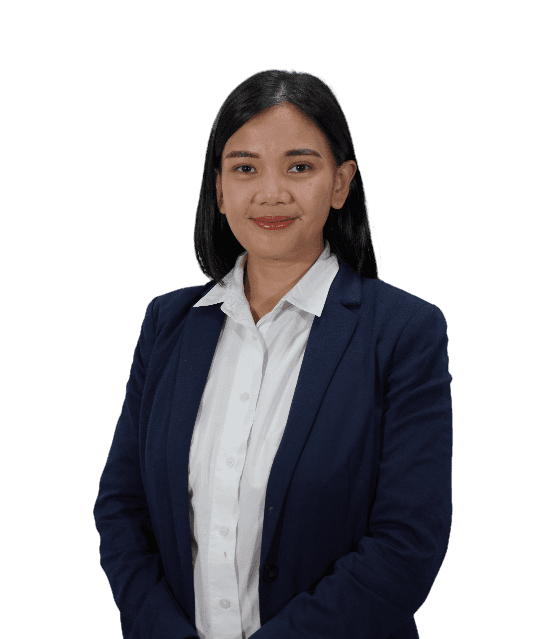
Monitoring, Evaluation and Learning Specialist
Mrs. Stephanie Mapaliey
Stephanie is a highly dedicated Program Specialist with over 15 years of experience in successfully executing diverse project tasks across national, regional, and global projects. Prior to joining the USAID Sustainable Coral Triangle Activity, Stephanie made significant contributions to various projects with Compassion International, China Road and Bridge Corporation, and UNDP Indonesia.
Her expertise is community engagement, operational program implementation, and Monitoring and Evaluation aspects, which she gained from her engagements in these diverse organizations. This experience has equipped her with sufficient set of skills as a solid foundation for her current role as Monitoring, Evaluation, and Learning Specialist for the USAID Sustainable Coral Triangle Activity.
Stephanie holds a Magister of Management degree from Klabat University in Manado, North Sulawesi, providing her with the necessary academic background to excel in executing her responsibilities effectively.

Project Administration Officer
Name
In Recruitment Process

Project Manager
Mr. Md Anjum Islam
Mr. Md Anjum Islam is a distinguished Project Management Professional with extensive experience in environmental and governance studies, supported by two Master’s degrees. He currently serves as the Project Manager for the USAID Sustainable Coral Triangle, implemented by the CTI-CFF Regional Secretariat, bringing a strong background in managing initiatives funded by USAID, DFID (now FCDO), and various UN agencies.
Previously, as the Monitoring and Evaluation Manager at the CTI-CFF Regional Secretariat, Mr. Anjum played a pivotal role in enhancing the effectiveness of CTI-CFF program interventions. His efforts were instrumental in advancing key initiatives within the Coral Triangle, focusing on regional conservation and sustainability.
Throughout his career, Mr. Anjum has made significant contributions to renowned organizations such as CARE Bangladesh, ActionAid Bangladesh, Action Against Hunger (ACF), and Practical Action Bangladesh. He has ensured the quality and impact of program interventions in critical areas, including WASH, Livelihood, Climate Change, Disaster Emergency Response, and Early Recovery projects.
Mr. Anjum’s professional expertise encompasses the design and implementation of robust project plans, leadership of diverse teams, and the achievement of successful project outcomes. His skills span Project Management, Monitoring and Evaluation (M&E), Data Management and Analysis, M&E Tool Development, and comprehensive Reporting & Documentation. Driven by a passion for sustainable development and positive change, Mr. Anjum is dedicated to advancing the objectives of the USAID Sustainable Coral Triangle.

Monitoring, Evaluation and Learning Specialist
Mrs. Stephanie Mapaliey
Stephanie is a highly dedicated Program Specialist with over 15 years of experience in successfully executing diverse project tasks across national, regional, and global projects. Prior to joining the USAID Sustainable Coral Triangle Activity, Stephanie made significant contributions to various projects with Compassion International, China Road and Bridge Corporation, and UNDP Indonesia.
Her expertise is community engagement, operational program implementation, and Monitoring and Evaluation aspects, which she gained from her engagements in these diverse organizations. This experience has equipped her with sufficient set of skills as a solid foundation for her current role as Monitoring, Evaluation, and Learning Specialist for the USAID Sustainable Coral Triangle Activity.
Stephanie holds a Magister of Management degree from Klabat University in Manado, North Sulawesi, providing her with the necessary academic background to excel in executing her responsibilities effectively.

Project Administration Officer
Name
In Recruitment Process

.png)